Quaker meeting has begun.
No more laughing, no more fun….. (Children’s Rhyme)

(Weighty Friend.)
Due in part to some confusion, some bad PR, and other unfortunate circumstances – we often aren’t thought of as much “fun”. Dour faces, stern countenance, “serious” prayer.
And yet, it has been my experience that humor is often a holy act of connection. Not the only form, but certainly, one that can get our attention, and make light of serious circumstances – not to dismiss them, but to help us pay attention again. A serious message might be more easily conveyed in a post with some humor.
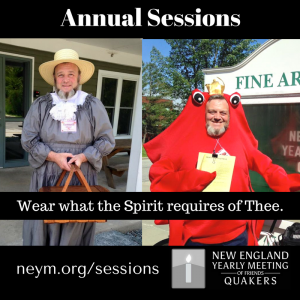
A meme (/ˈmiːm/ MEEM) is an idea, behavior, or style that spreads from person to person within a culture — often with the aim of conveying a particular phenomenon, theme, or meaning represented by the meme. A meme acts as a unit for carrying cultural ideas, symbols, or practices, that can be transmitted from one mind to another through writing, speech, gestures, rituals, or other imitable phenomena with a mimicked theme. Supporters of the concept regard memes as cultural analogues to genes in that they self-replicate, mutate, and respond to selective pressures. (Wikipedia)
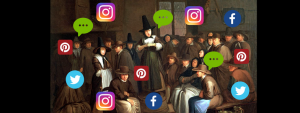
In my social media work for the New England Yearly Meeting, I have found humor and memes to be some of our most engaging posts. Can we as Friends also be current, and aware of pop culture, and part of the dialogue in more varied social circles? I like to visually remind Friends that we are “in the world” – not just beside it. This might be very different from the Friends of earlier times, with their own exclusive communities, schools, and rules of marrying only within the faith.
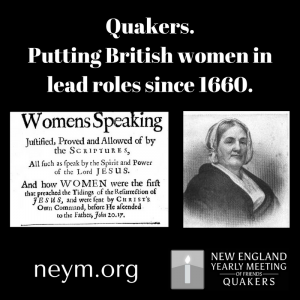
How do I create these memes and humorous posts? I begin by paying attention. The world around us, popular culture, messages in advertising, are filled with ideas and trends. I do not seek to copy that work. I seek to somehow make it “Quakerly” – with a statement about who we are, faithfulness, struggle and Joy. I also remember in a challenging spiritual journey, a bit of laughter and self-deprecation can be useful. I also occasionally search out “popular memes” on google, or use a few meme apps on my phone. Most helpful? I live with a pre-teen. She knows things. Another GREAT resource (and community) has been the Association of Bad Friends (Quakers) on Facebook. We forbid anything but true levity – and community is formed!
Below are some examples of humor we’ve used at NEYM and in my other posts and work. What have you found most helpful, engaging, and funny?
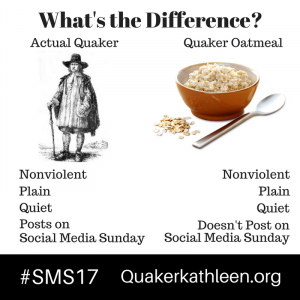
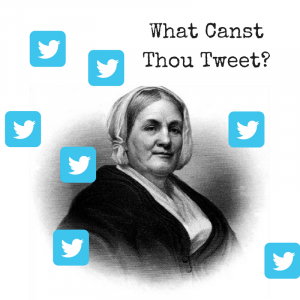
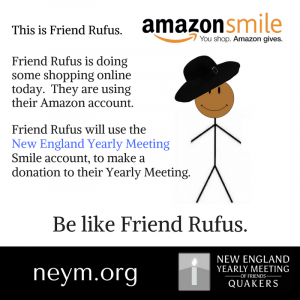
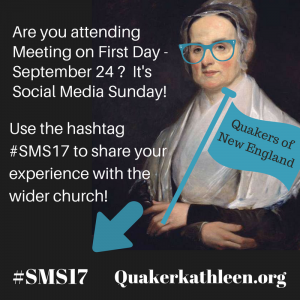
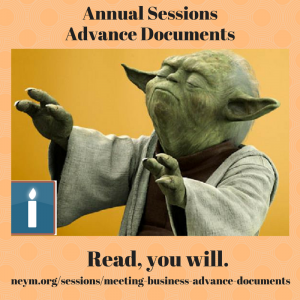
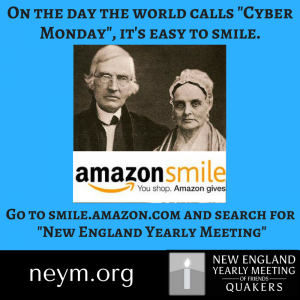
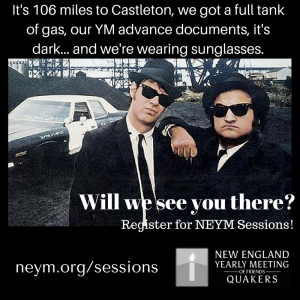
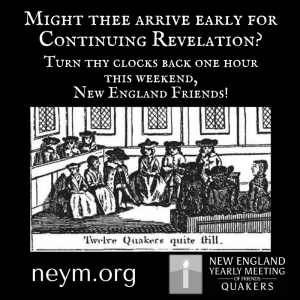

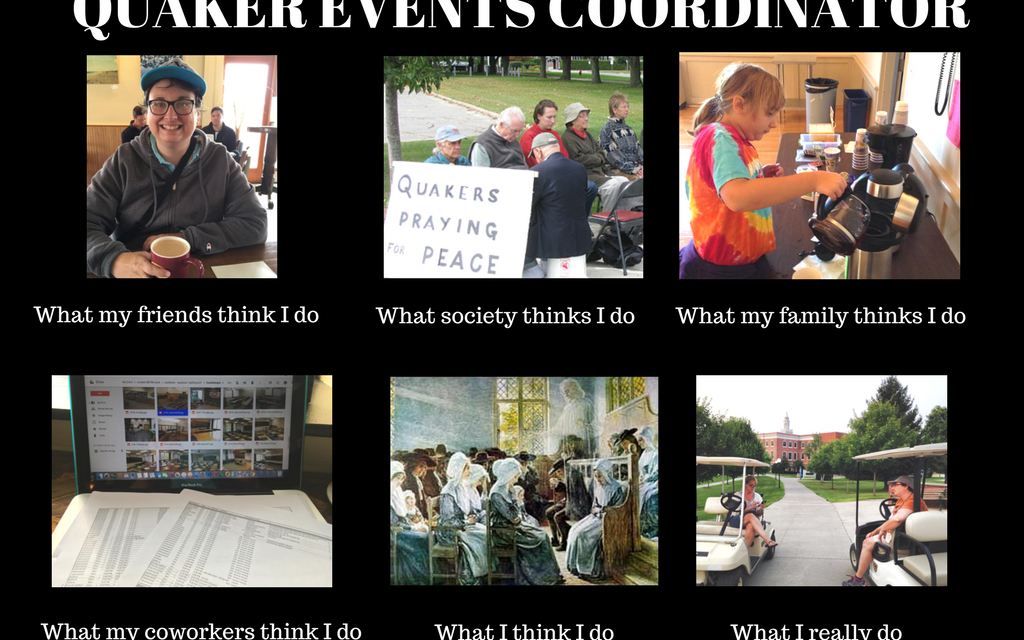

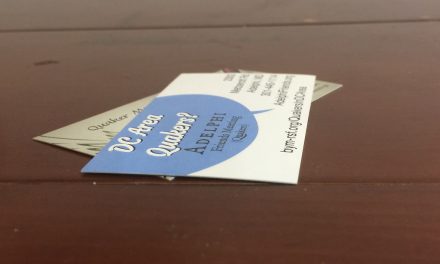


Recent Comments